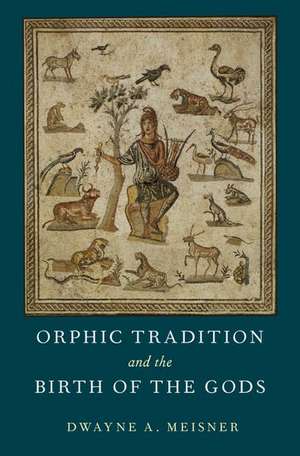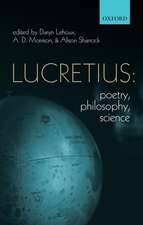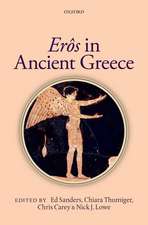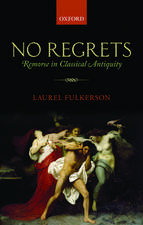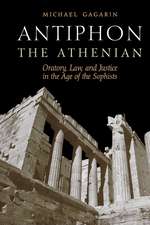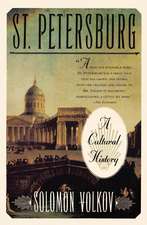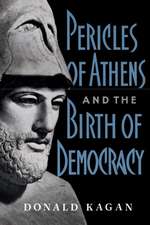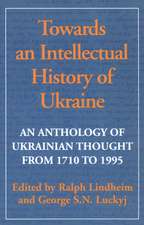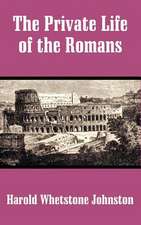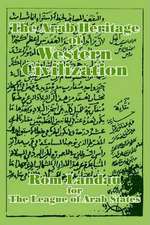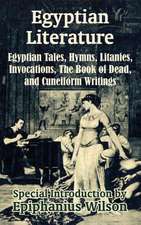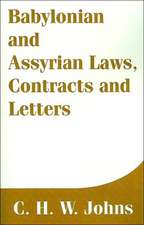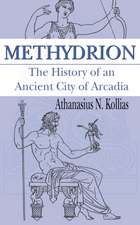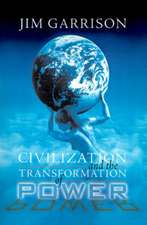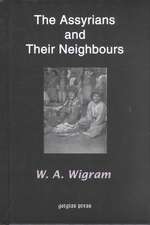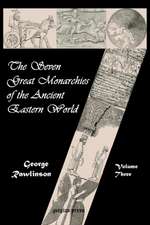Orphic Tradition and the Birth of the Gods
Autor Dwayne A. Meisneren Limba Engleză Hardback – 6 sep 2018
Preț: 575.70 lei
Preț vechi: 680.89 lei
-15% Nou
Puncte Express: 864
Preț estimativ în valută:
110.16€ • 115.01$ • 91.17£
110.16€ • 115.01$ • 91.17£
Carte disponibilă
Livrare economică 04-10 martie
Preluare comenzi: 021 569.72.76
Specificații
ISBN-13: 9780190663520
ISBN-10: 0190663529
Pagini: 336
Dimensiuni: 155 x 239 x 31 mm
Greutate: 0.56 kg
Editura: Oxford University Press
Colecția OUP USA
Locul publicării:New York, United States
ISBN-10: 0190663529
Pagini: 336
Dimensiuni: 155 x 239 x 31 mm
Greutate: 0.56 kg
Editura: Oxford University Press
Colecția OUP USA
Locul publicării:New York, United States
Recenzii
Meisner provides students and advanced scholars of Orphic theogonies with a splendidly equipped tool to navigate through the evidence and bibliography, with complete and balanced status quaestionis of each relevant issue, cautious hypotheses, and clear and convincing methods. Future research will walk along several of the paths opened by this book.
This work is impeccable from the viewpoint of erudition, with regard both to primary sources and to secondary literature... An excellent introduction to the various versions of the Orphic cosmogony
Throughout, Meisner is attentive to both the history of scholarship on Orphism and current controversies, and he is evenhanded in his discussion. He does a good job of showing that Greek religious thought and philosophical questions were central to the production and reception of the Orphic theogonies from as early as evidence is available. ... Summing up: Recommended
Meisner provides an important new study of these complex and fascinating texts. By approaching the Orphic theogonies as diverse products of bricolage, he helps to make sense of the bizarre elements, the complicated intertwinings of plots, and the contradictions in the fragmentary evidence. He is particularly sensitive to the need to understand the evidence from the Neoplatonists in its philosophical context, and he guides the reader surely and steadily through the often baffling intricacies of Neoplatonic theology.
Dwayne Meisner's fascinating discussion of Orphic theogonies is the first of the topic after West's Orphic Poems of 1984. The intervening decades have especially seen the final publication of the Derveni Papyrus and other Orphic texts; this has triggered an intensive and controversial scholarly debate. Meisner proposes a new view that takes seriously the ritual function of these poems. His picture thus moves far away from West's and it has the potential to initiate a new scholarly consensus on an intriguing genre of Greek poetry.
This work is impeccable from the viewpoint of erudition, with regard both to primary sources and to secondary literature... An excellent introduction to the various versions of the Orphic cosmogony
Throughout, Meisner is attentive to both the history of scholarship on Orphism and current controversies, and he is evenhanded in his discussion. He does a good job of showing that Greek religious thought and philosophical questions were central to the production and reception of the Orphic theogonies from as early as evidence is available. ... Summing up: Recommended
Meisner provides an important new study of these complex and fascinating texts. By approaching the Orphic theogonies as diverse products of bricolage, he helps to make sense of the bizarre elements, the complicated intertwinings of plots, and the contradictions in the fragmentary evidence. He is particularly sensitive to the need to understand the evidence from the Neoplatonists in its philosophical context, and he guides the reader surely and steadily through the often baffling intricacies of Neoplatonic theology.
Dwayne Meisner's fascinating discussion of Orphic theogonies is the first of the topic after West's Orphic Poems of 1984. The intervening decades have especially seen the final publication of the Derveni Papyrus and other Orphic texts; this has triggered an intensive and controversial scholarly debate. Meisner proposes a new view that takes seriously the ritual function of these poems. His picture thus moves far away from West's and it has the potential to initiate a new scholarly consensus on an intriguing genre of Greek poetry.
Notă biografică
Dwayne Meisner grew up in Saskatchewan, Canada where he earned his first two degrees at the University of Regina. In 2015, he completed his PhD in Classical Studies at the University of Western Ontario, and then returned to the University of Regina to work as a Sessional Lecturer. He specializes in the study of ritual and myth, with a particular focus on ancient Greek ritual.
